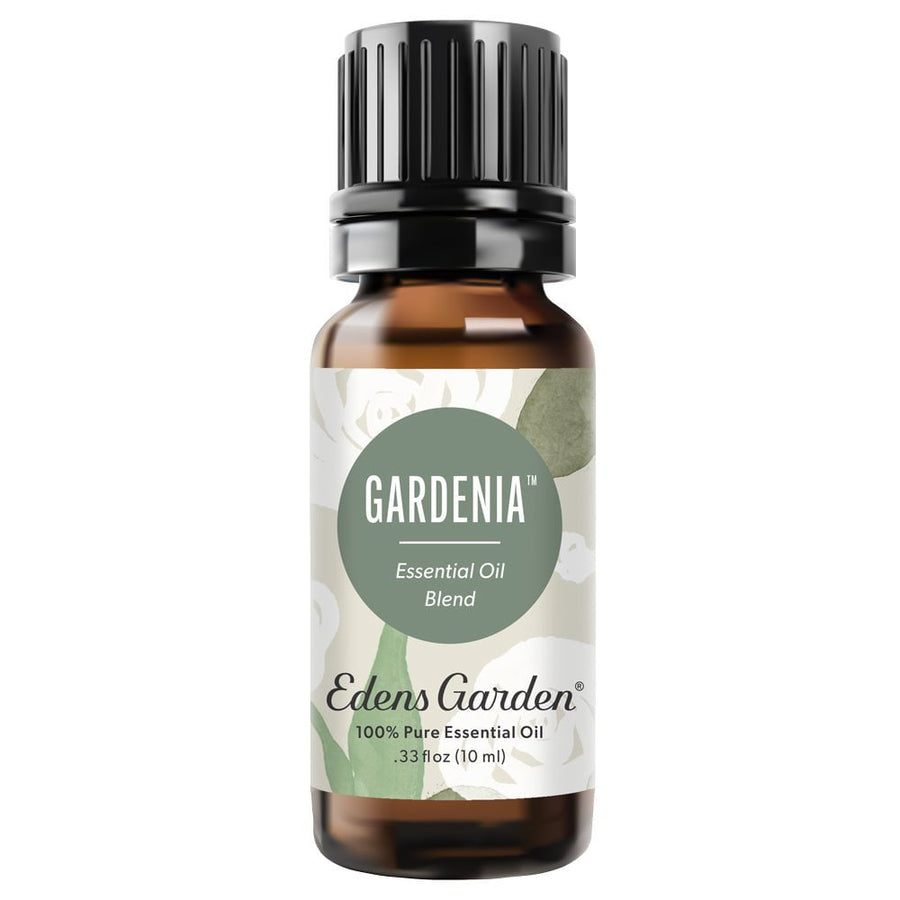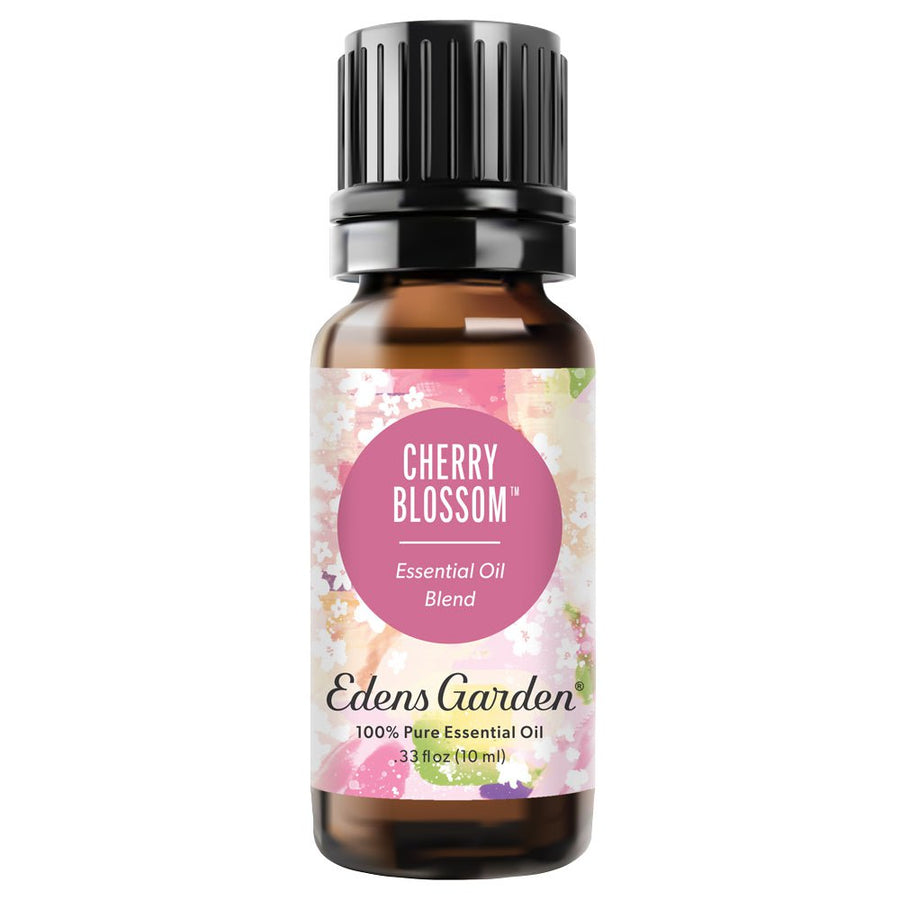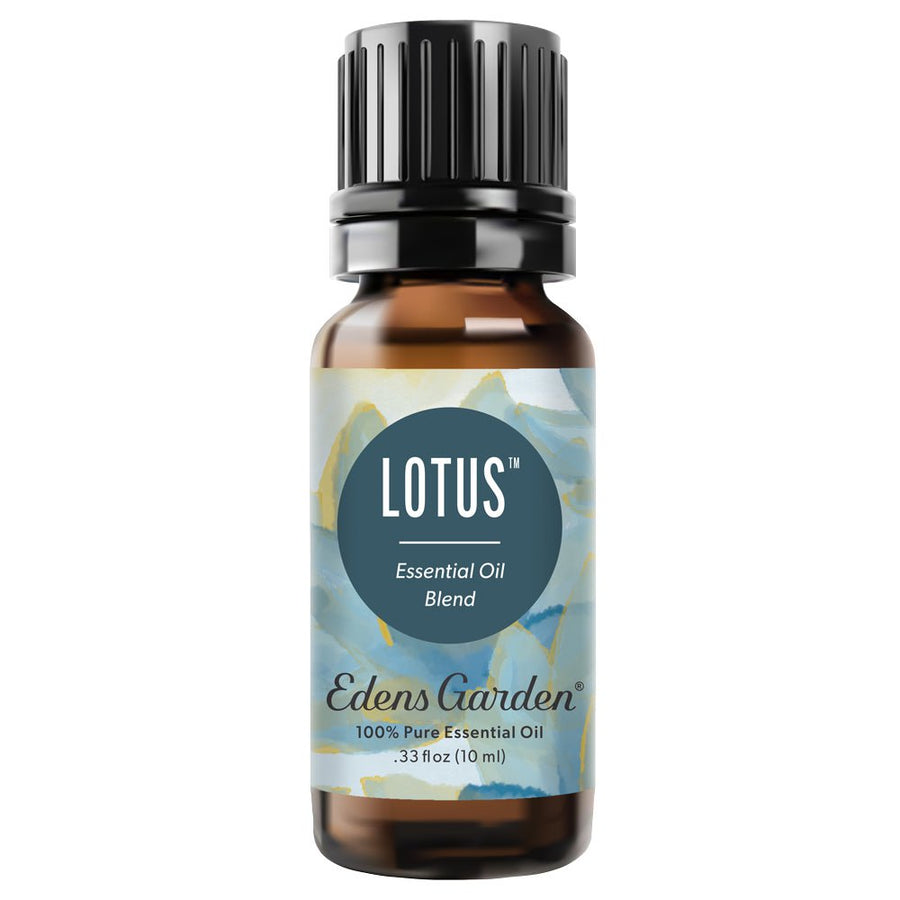Fragrance Oil vs. Essential Oil

With so many scented products on the market, such as candles, body care, room sprays, and perfumes, choosing the right aroma can be overwhelming. One of the most critical yet confusing decisions is whether to go with fragrance oils or essential oils. While both offer pleasant scents, they are fundamentally different in composition, purpose, and safety.
At Edens Garden, our mission is to offer 100% pure essential oils that not only smell amazing but also support your health and wellness. And with the launch of our new In Bloom collection, we're excited to bring you natural alternatives to aromas that are often only available in synthetic form. Let’s break down everything you need to know about fragrance oils vs. essential oils, and why going natural is worth it.
What Is a Fragrance Oil?
Fragrance oils are synthetically created scent compounds made in laboratories. They are commonly found in products like perfume, scented candles, air fresheners, and personal care products. While some fragrance oils may include naturally-derived ingredients or even small amounts of essential oils, most are composed of artificial chemicals.
Under the Fair Packaging and Labeling Act (FPLA), companies are not required to disclose the individual ingredients in a fragrance. As a result, the term "fragrance" on a label can represent a cocktail of undisclosed chemicals, including potential hormone disruptors, carcinogens, and allergens.
According to a study by the Environmental Working Group (EWG), 17 major perfume brands were tested and found to contain an average of 14 undisclosed chemical ingredients per product.[1] Many included diethyl phthalate, tonalide, and galaxolide–ingredients linked to hormone disruption and reproductive toxicity.
What Is an Essential Oil?
Essential oils are concentrated plant extracts obtained through steam distillation or cold pressing.[2] These oils capture the "essence" of the plant, which is the aromatic and therapeutic compounds that give herbs, flowers, and spices their distinctive aromas and health benefits.
Used for centuries in aromatherapy, essential oils have been studied for their ability to:
- Promote relaxation and better sleep
- Reduce stress and anxiety
- Alleviate pain and inflammation
- Improve skin conditions
- Balance hormones
At Edens Garden, we go above and beyond industry standards to ensure our oils are 100% pure, natural, and top quality. Each batch is rigorously tested through GC/MS reports, organoleptic evaluation, refractive index, and specific gravity testing to verify quality and authenticity.
What Is the Difference Between Fragrance Oils and Essential Oils?
Let’s explore the key differences in more detail:
Purity
- Essential Oils: At Edens Garden, our definition of purity means zero synthetics, pesticides, or additives—just the unadulterated essence of the plant.
- Fragrance Oils: These are often a blend of synthetic, naturally-derived, and artificial ingredients. Their formula may contain chemical preservatives and carriers, making them impure and adulterated.
Therapeutic
- Essential Oils: Contain bioactive compounds that interact with the body to support health and wellness. For example, Lavender is known for its calming effects, while Peppermint can promote mental clarity and relieve tension.[3]
- Fragrance Oils: Designed solely for scent. Even if they include trace amounts of essential oils, the presence of synthetics often neutralizes therapeutic benefits.
Non-Toxic
- Essential Oils: When used responsibly and diluted properly, essential oils are non-toxic, safe, and effective. They're also biodegradable, posing less risk to both your body and the environment.
- Fragrance Oils: May contain phthalates, formaldehyde-releasing agents, and other toxic substances linked to respiratory issues and hormonal imbalance.[4]
Natural
- Essential Oils: Derived directly from plants with minimal processing. Truly natural and botanical.
- Fragrance Oils: Even those labeled “natural” may contain isolates, which are chemicals that have been extracted and altered from their natural form, or synthetic versions mimicking nature.
Clearing Up Your Questions on Essential Oils vs. Fragrance Oils
Despite increased awareness, mislabeling and greenwashing remain rampant in the aromatherapy industry. Many brands market their products as "natural" or "with essential oils," while the majority of the content is made up of synthetics or adulterated oils.
Here are a few ways to verify authenticity:
- GC/MS test reports: Provide a detailed breakdown of chemical constituents.
- Country of origin: Helps trace the botanical source.
- Shelf life: Essential oils degrade over time and should have a defined lifespan.
At Edens Garden, we raise the bar even higher with:
- Transparent testing results
- Vegan and cruelty-free practices
- Eco-conscious manufacturing
- Fair trade sourcing
Nature-Inspired Aromas Without the Synthetics
We created the In Bloom collection to offer a natural alternative to synthetic floral fragrances. Inspired by popular perfume profiles, these 100% pure essential oil blends capture the same elegance, romance, and freshness, without any toxic chemicals.
Highlights from the In Bloom Collection:
- Sweet Pea: A soft, feminine bouquet perfect for spring and self-care rituals.
- Cherry Blossom: A luscious floral blend with uplifting notes of almond.
- Lotus: A soothing blend with aquatic floral notes.
Each aroma in the In Bloom collection is expertly formulated using only plant-based essential oils, with no added isolates or synthetics. You’ll enjoy complex, beautiful aromas with real aromatherapeutic benefits and not just a pretty smell.
If you’ve ever wished for a cleaner version of your favorite floral fragrance, In Bloom is your answer.
Act Natural
When it comes to choosing between essential oils and fragrance oils, the answer becomes clear once you understand what’s inside each bottle. While fragrance oils may offer convenient and strong scents, they often come at the cost of your health, wellbeing, and environmental safety.
Essential oils, on the other hand, are a gift from nature, rich in purity, therapeutic properties, and natural aroma. At Edens Garden, we believe in real transparency, honest labeling, and offering only the best of what nature has to offer.
And now, with the launch of our In Bloom collection, you no longer have to choose between a scent you love and ingredients you trust. Say goodbye to synthetic knock-offs and hello to naturally beautiful aromas that support your wellness journey.
SOURCES:
- Not So Sexy. https://www.ewg.org/research/not-so-sexy#.WuNY-5N97BI
- Fleeting Beauty—The World of Plant Fragrances and Their Application. https://pmc.ncbi.nlm.nih.gov/articles/PMC8122868/
- Effects of Aromatherapy with Lavender and Peppermint Essential Oils on the Sleep Quality of Cancer Patients: A Randomized Controlled Trial. https://pubmed.ncbi.nlm.nih.gov/32308715/
- Perfume chemicals tied to hormone disruption and health risks. https://www.ehn.org/perfume-chemicals-tied-to-hormone-disruption
Grab The Essentials Here:
Leave a comment (Comments will be approved before showing up)
7 comments
Kathi Shauver
do you guys have a catalogue or do we just look through all the different oils on the website. I’ve never tried this company before
Rosa lilia Pulido
I have enjoyed Edens Garden Oils for years. I am grateful for the affordable prices and their quality. Thank you.
Edens Garden
Hi Judy! We’re sorry to hear that. We offer a 30 day return policy if you’re ever unsatisfied with a product. Please contact our customer care team to initiate the return process: info@edensgarden.com
Judy komlodi
I was about to order Cinnamon but read up on it; I went with the one I never heard of;Cassia . I do not like it at all, I do not smell cinnamon .
Edens Garden
Hi Charlotte! Yes, there are many plants which you cannot obtain essential oils from. You can learn more about how to identify ‘fake’ essential oils here: https://www.edensgarden.com/blogs/news/6-ways-to-tell-if-an-essential-oil-is-fake
Charlotte austin
hi, are there certain aromas that can’t be made with essential oils, from plants whose makeup is too delicate to harvest an oil from? Is there a way to tell based on what aroma a fragrance is saying it is, that it’s not possible for it to be an essential oil? I’ve heard that flowers like those from honeysuckle or lilac plants are too delicate to get an essential oil from. Is that true? Are there some scents, like peach or musk that you can’t get from essential oils, or combinations of essential oils that would be a red flag when looking to buy something that claims to be using essential oils but isn’t? Sorry, apparently my thoughts aren’t coming very clearly right now. I hope you get what I’m asking. Is there a list you could make of what things clearly can’t come from essential oils to look out for to know if a company is lying or not?








Edens Garden
February 15, 2022 at 10:30 am
Hi Kathi! We do not have a catalog at this time. Our apologies for any inconvenience!